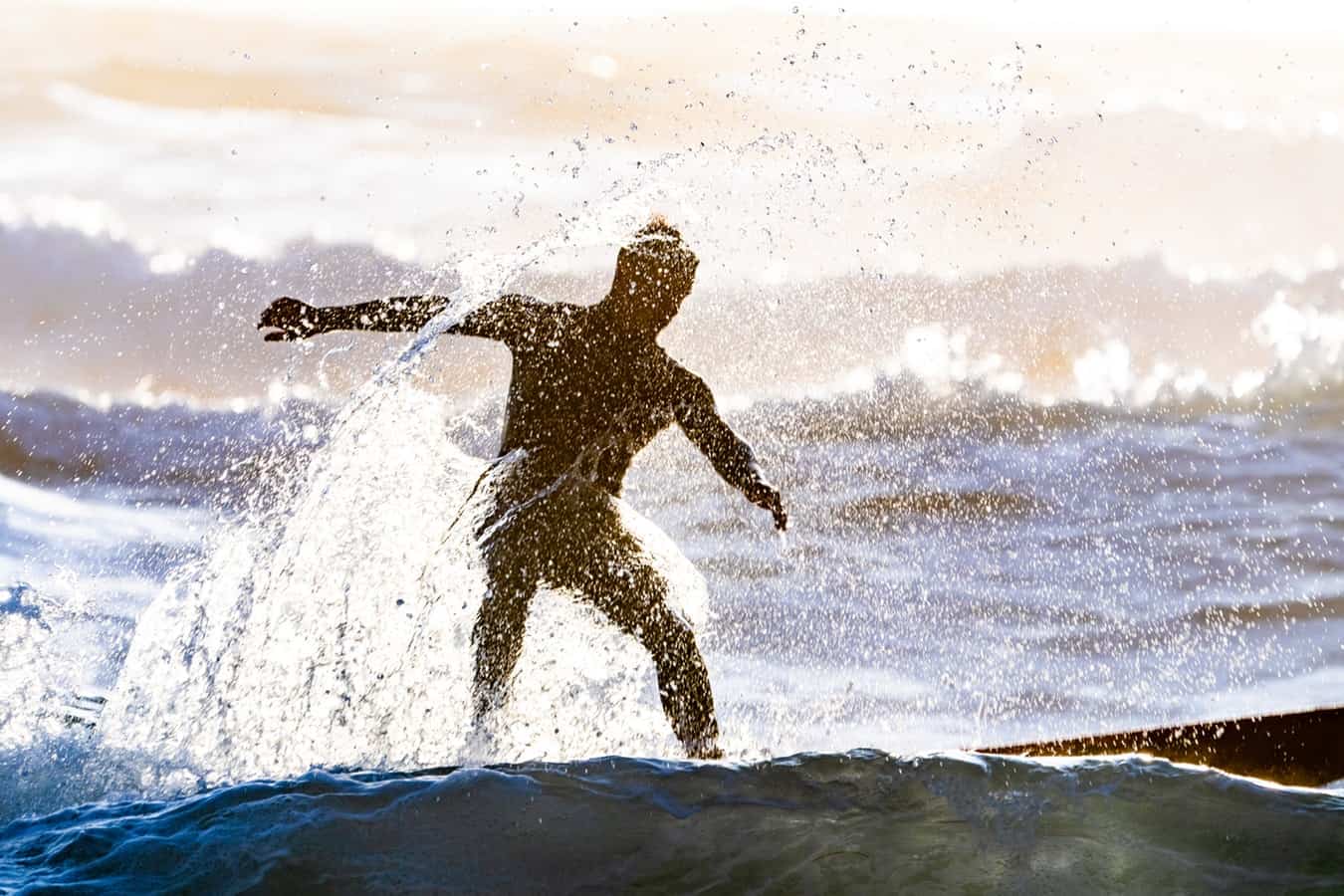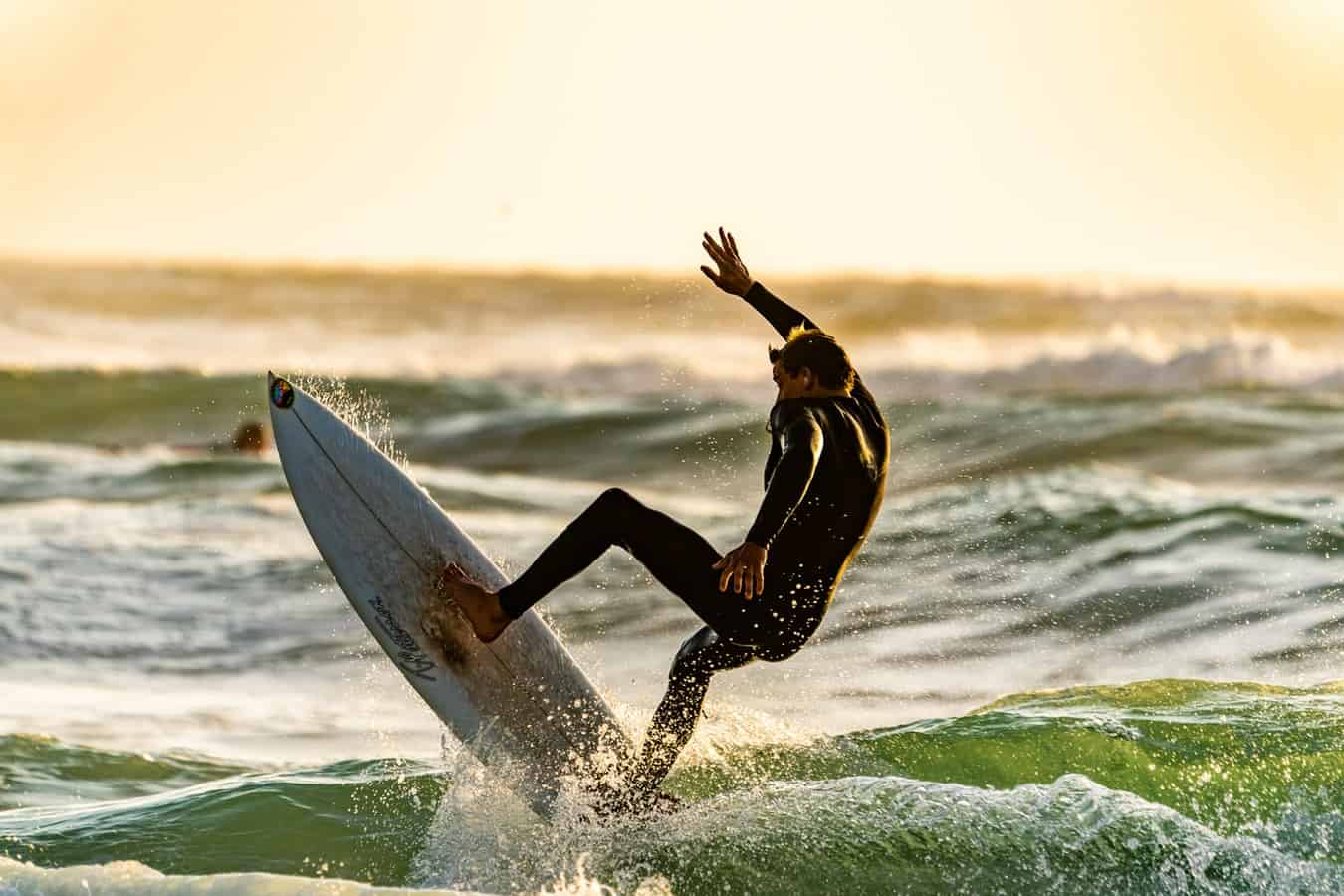There is no doubt that surfing is an entertaining sport to watch and participate in. Whether you’re an amateur just surfing for fun or you are a pro surfing in competitions, the world is constantly mesmerized by the beauty of surfing. Yet the question of whether or not surfing is a physically demanding sport arises time and time again. So I decided to do a little research of my own and here is what I found.
Is Surfing a Physically Demanding Sport? Surfing is considered one of the most physically demanding sports in the world because of its constant involvement and work out of nearly all the muscle groups of the body. In addition, it also takes balance and a lot of knowledge and understanding of whatʻs going on in changeable ocean conditions.
As you surf more frequently, your muscles will become accustomed to the constant strain which will cause them to become stronger. Having stronger muscles will help you reach your full surfing potential and also to help you surf longer. While they do become stronger, the neglected care for your muscles could result in injuries. In light of this, there are still many surfing etiquettes to make sure your muscles stay strong and flexible.
What Muscles Do You Work Out While Surfing?
Your muscles are being used from before you are paddling for the wave to after you stand up and do a trick. Your muscles are working together to try to make it as easy as possible for you. While paddling, you work out your biceps, triceps, trapezius, and deltoids because of the constant resistance that the water creates for your upper body. When standing up to ride the wave, your hips and legs muscles like the abdominals, quadriceps, gluteals, are activated to help you turn and do tricks on the wave.
While constant surfing will help with your conditioning on the water, getting strength training or doing yoga will help to train your surfing muscles and make sure that they are prepared for bigger and better things. While strengthening your muscles is great for your surfing, making sure that you stretch them will decrease the chances of injury, cramps and many other things while on the water. One thing that really damages your muscles and your surfing is smoking.
Your muscles are always in constant need of oxygen which is blocked when you smoke. Taking a step away from smoking will give you the best chance to move forward and excel. Something else to note is that some surfers said that they donʻt even have to work out other times of the day because of the constant workout they get while they are surfing.
Surfing is a great workout and a great cardiovascular exercise that helps to strengthen your heart in the process of standing up, paddling, and using your core muscles. Surfing is a great way to burn calories and can burn nearly the same amount of calories as football or even one session in the gym. Surfing is also a low-impact sport that helps to reduce the amount of pressure on your hips and knees as opposed to an activity like running.
Now you could be thinking, why did he have to go through all of that when he could have just said, “it works out the whole body”. Well, I thought it would be a good visual if I broke it down for you and give our muscles the praise they deserve.

Pre Surf Session Warm-ups
When getting ready to surf, you should always warm up your muscles so that you are able to perform to your full potential. Failure to warm up your muscles before a session could result in injury. Just think of your muscles as an instrument. If you use it over and over without proper care, they will get worn down and break. Same as your muscles in the sense that you need to warm them up before you use them. Also, warming up and stretching your muscles before you go surfing can help with flexibility which can help you when you are doing tricks. Not only is it important to exercise and stretch, but it is also important to have a good nutritional meal before you go into the water so that your muscles have fuel to carry you thought the session. Here are some basic warm-up exercises:
- Jumping Jacks
- Toe Touches
- Arm Circles
- Neck Roll
- Shoulder Roll
- Shoulder Stretch
- Side Reach
These are some of the basic stretches that I use when I am getting ready to surf which may help you also in getting warmed up. There are still many more stretches and exercises that can be used to further your warm-ups. Take the time to look through a bunch of exercises and see which ones work best for you.
Does the Type of Surf Board Matter?
Surfboard does play a big role in how physically demanding surfing can be. To start off, there are many types of boards that range from all different types of sizes and materials. One type of board which is called a “Foamy” is used for beginners. This is a longboard made out of foam which helps it to float better in the water. These boards do help to eliminate some unnecessary drag and help you to catch waves easier. This means that you don’t have to use as much energy while surfing because of the buoyancy. One downside to these types of boards is the fact that it is a very low-performance board meaning that it is harder to turn and not a great board to do tricks on.
On the other hand, a short or longboard that is made out of Epoxy or Fiberglass is way harder to paddle on and forces you to use more physical strength. While the foam boards allow the board to ride above the water, the epoxy boards sink which causes it to create way more drag. On the plus side though, these boards are usually very high performance which means they can be maneuvered and turned sharply on any trick. I would definitely recommend using a “Foamy” to start off with as a beginner and eventually work your way up to an Epoxy or Fiberglass board once you get more experienced at surfing.
How The Changing Weather Conditions Affect the Surfer
Being a strong surfer is not only based on how long you can surf for or how great your tricks are. It is also the ability to watch the ever-changing weather conditions and make the best decision based on what the weather is telling you. A change in weather or size of wave can easily catch you off guard which could cause panic which could lead to injury. The best thing to do is to stay calm and find the best solution.
The weather and waves can change in a matter of instants and you have to make the safest decision. If you thought surfing was physically demanding on a glassy day, then you wonʻt even believe how hard it can get when unpredicted factors are added to it.
Currents could get stronger, waves could get bigger and it really comes down to a battle of strength and mind. This is when the real physical demand is implemented and you have to get yourself to shore without putting your own life in danger. Be sure to be alert at all times when surfing to be ready if you need to handle an unexpected situation.
Related Questions
How long will it take for me to learn how to surf?
Well, it really depends on how you are with balance. When starting off, beginners should stick to the whitewash where you will learn how to balance yourself without falling off your board. As you gain more experience, you will be able to move farther out and catch bigger waves. Always remember that if you’re in doubt, donʻt go out.
Do you have to be in good shape to learn how to surf?
Any body type can learn how to surf. Different body types need different sized boards when learning how to surf so that the board can hold the weight of that person. When surfing bigger waves you will need to stand up with great speed so that you don’t nose dive which requires a fir individual, but if you are just learning then anyone can try to surf.
If I get caught in a Rip Current what should I do?
The first thing to do is not to panic. If you panic it interferes with common sense and sometimes you make wrong decisions. If you are stuck in a Rip Current, start paddling your board to either side and continue until you can freely paddle back to shore. Do not paddle against the current. You will waste your energy and will have a harder time getting back to shore.
Can you learn to surf at any age?
Like many other sports, surfing does not have an age limit. Anyone of any age can learn how to surf if they have the willpower and determination. I started surfing at the age of 2 and I have never stopped since.

